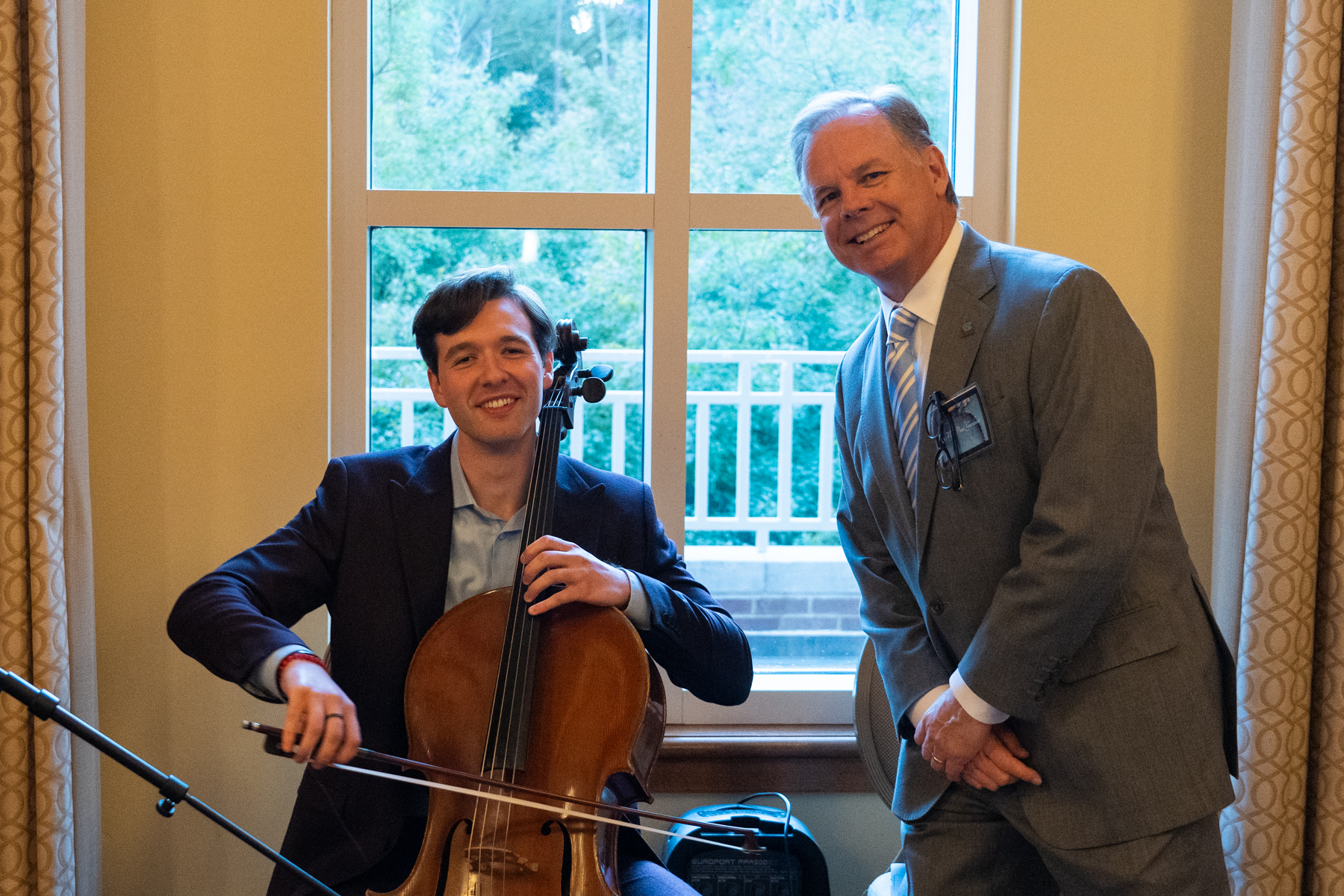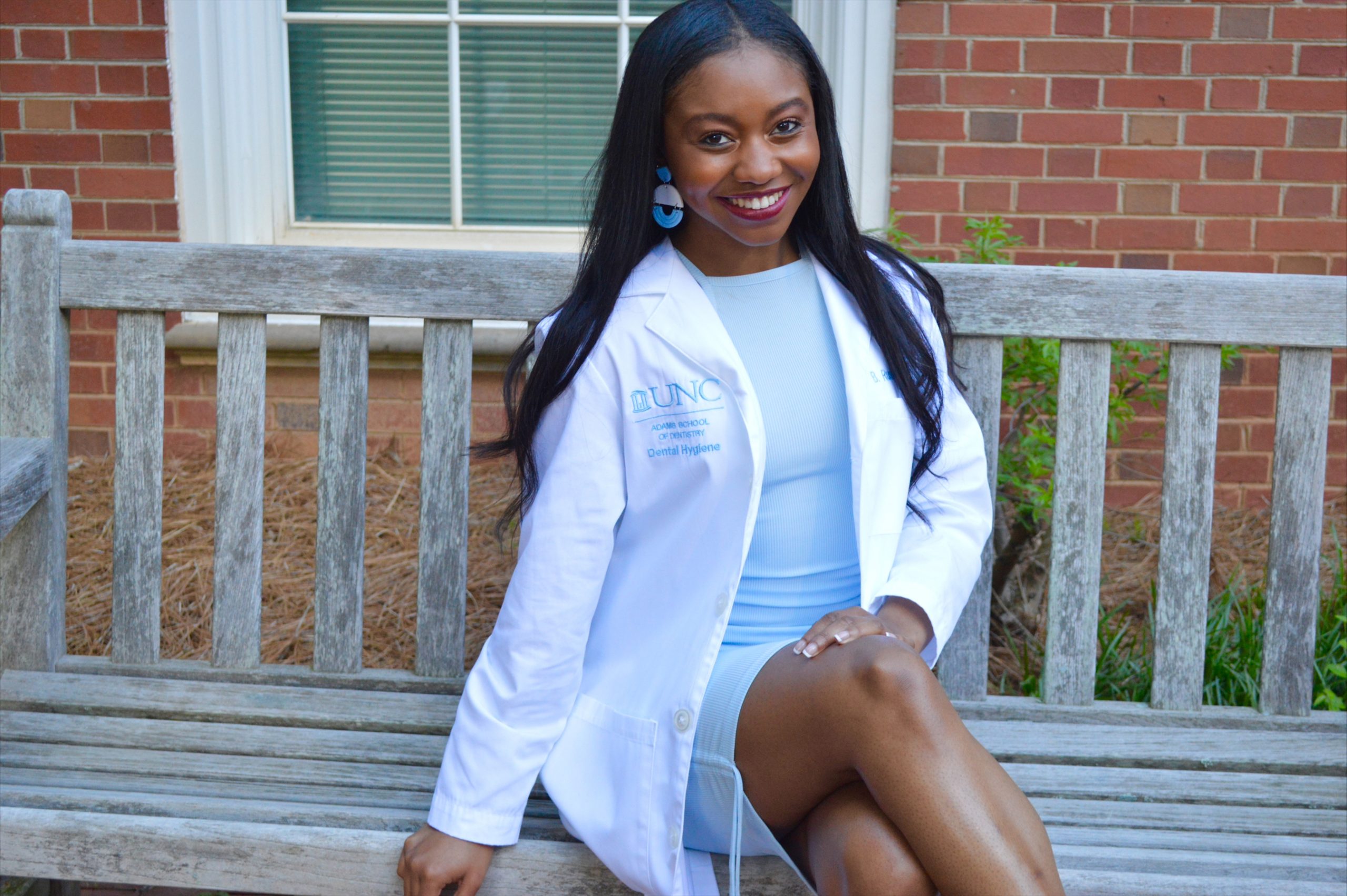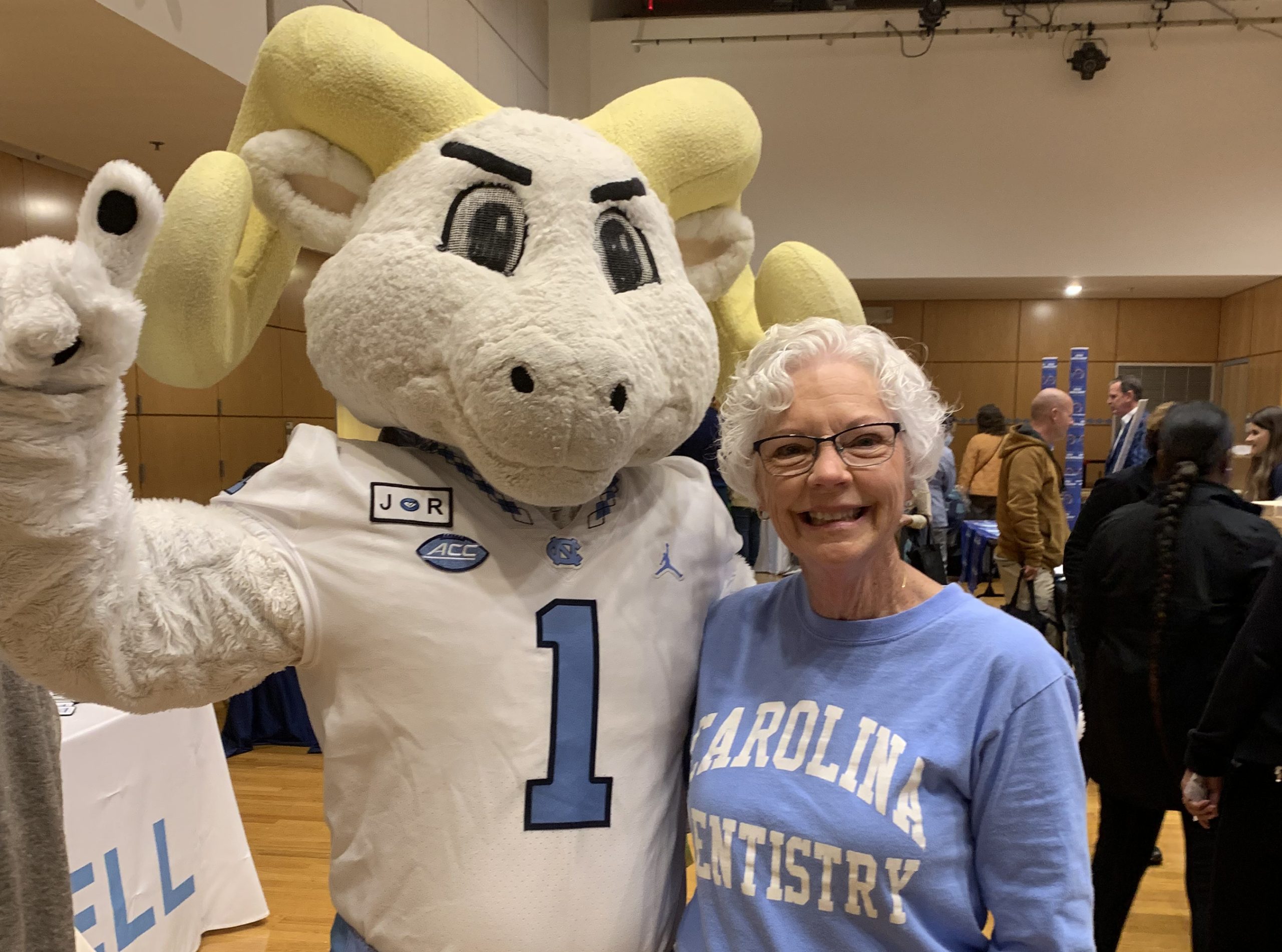Researcher’s work in data, genetics moves oral health care forward

With a love of math and an interest in studying biology in a different way, UNC Adams School of Dentistry’s Di Wu, PhD, has found the perfect niche for her skill-set in biostatistical research.
“I trained as a biologist, then started to develop an interest in data analysis, so I got a master’s degree in biostatistics in Australia. Then I completed a PhD, and I thought ‘okay, let’s see what else I can do.’”
She is currently an associate professor at the dental school and has co-appointments in both UNC Lineberger Comprehensive Cancer Center and Gillings School for Global Public Health in the department of biostatistics. After doing post doctoral work at Harvard University, Wu started connecting her work in data with genetics, crunching numbers derived from breast cancer data and looking at how the numbers could influence medicine in clinical settings, including analyzing genomic data in the hopes of discovering new uses for therapeutic drugs.
“I realized one way to study biology was to do large-scale computation that allows us to look at all expressed genes at the same time instead of several genes (based on the early stage of microarray), and it gives a more global view than the pure wet lab experiments. I was fascinated by that,” she said.
A new perspective
Oral health care is a newer aspect of her career that she’s enjoying, and said before arriving at UNC Chapel Hill, she had mostly focused on breast cancer and genetic testing in that field. Working with Adams School of Dentistry’s Kimon Divaris, PhD, the James Bawden Distinguished Professor, she was introduced to work with microbiomes during an eight-year study on studying the complex social, behavioral, and biological determinants in children’s oral health that was conducted in conjunction with the University of Pennsylvania.
This research was published in the journal Nature Communications, and is one of many milestones Wu has reached in her career. In addition to being a co-author on the paper with Divaris, she recently received a $50,000 UNC Lineberger Developmental Award for a project titled “Drug Repurposing for Head and Neck Cancer Using Genomics Data Integration and Electronic Health Records.” Her study will be funded for one year, and she said it’s a natural progression for her work.
Repurposing drugs to help cancer patients
Wu is especially interested in the drug repurposing aspect of her project and said it’s a very efficient way to bring better treatments to oral cancer patients, since often the drugs being used have been through the U.S. Food and Drug Administration approval process, so they have already been deemed safe for use.
“Similarly, if some drugs have strong indications that they will work on a certain problem and we can develop new drugs out of those, we can practice precision medicine that may lead to early detection.
“During the past eight years, I’ve been passionate about cancer research strategies, but now that I’m in this new place, I’ve started thinking we should work on a project with the cancer center, taking what we can learn from electronic health records (EHR) and applying that data to dental records and cancer hospital records, and see if there’s a way to connect these,” she said.
A team player
Wu enjoys the team science aspect of working across disciplines, and has relied closely on expertise from her peers at the dental school while working toward the launch of her project. Being new to the oral health care field has only sharpened her interest in taking her research to the next level as she finds new ways to integrate her biostatistics background into different scientific areas.
“I didn’t know much about dentistry when I got here, but I’m interested in knowing more. I stay at UNC because it’s such a collaborative environment. Everyone here is strong in their fields, but they still help each other,” she said. “The way a good leader becomes more mature is to work with people better than you.”
Encouraging balance in life and science
Wu has collaborated with the dental school’s Valerie Murrah, DDS, on clinical aspects of her project, and has worked with otolaryngology physicians, as well. She also appreciates her graduate students and their dedication to studying the connections between oral health and biostatistics and helping them see how their work “connects to the real world” through clinical trials. She also stresses the need for her students to achieve a balance between the disciplines, something she also tries to do in her home life.
“It’s very important to me to have a work/life balance, and I try to communicate that to my students,” she said. Wu said she loves to travel and enjoys seeing new places while traveling for work. She likes to get out every day and walk, go to the gym or do yoga. She also enjoys spending time with her son, who’s following in his mom’s footsteps and is majoring in statistics at N.C. State University.
“I didn’t force him!” she laughs.


